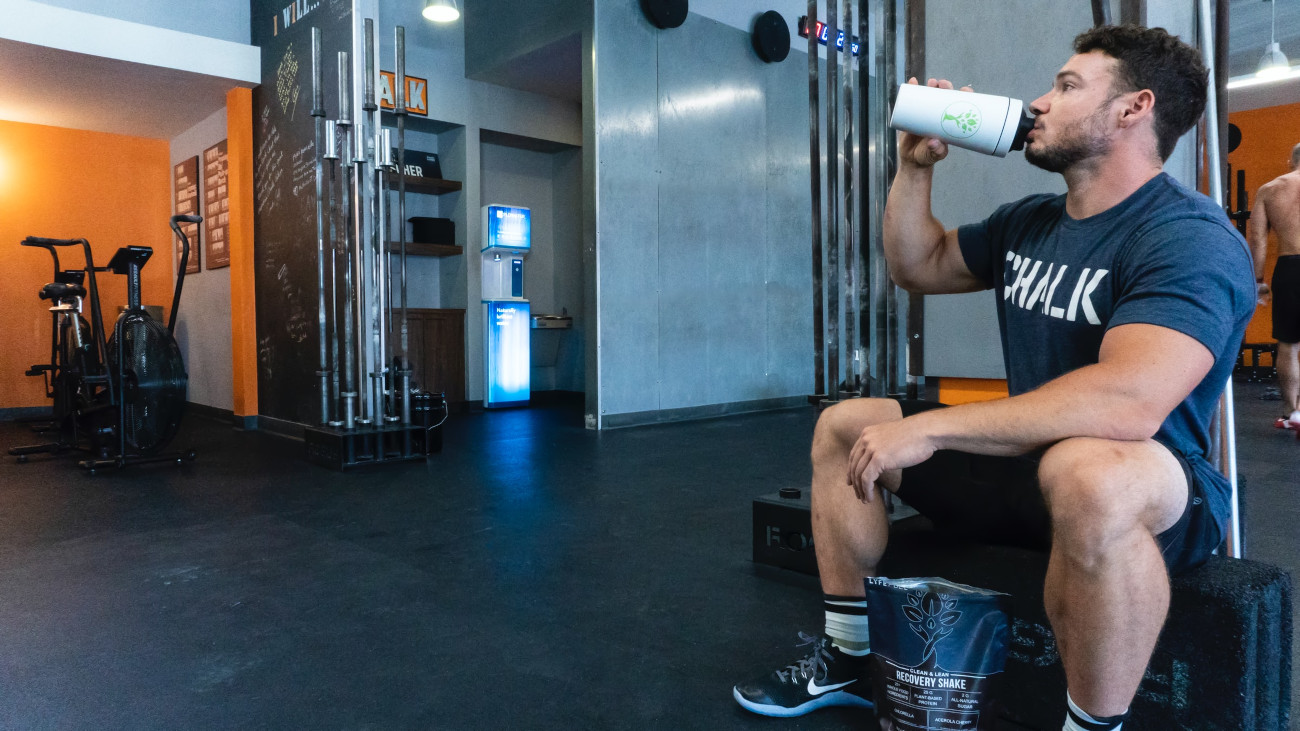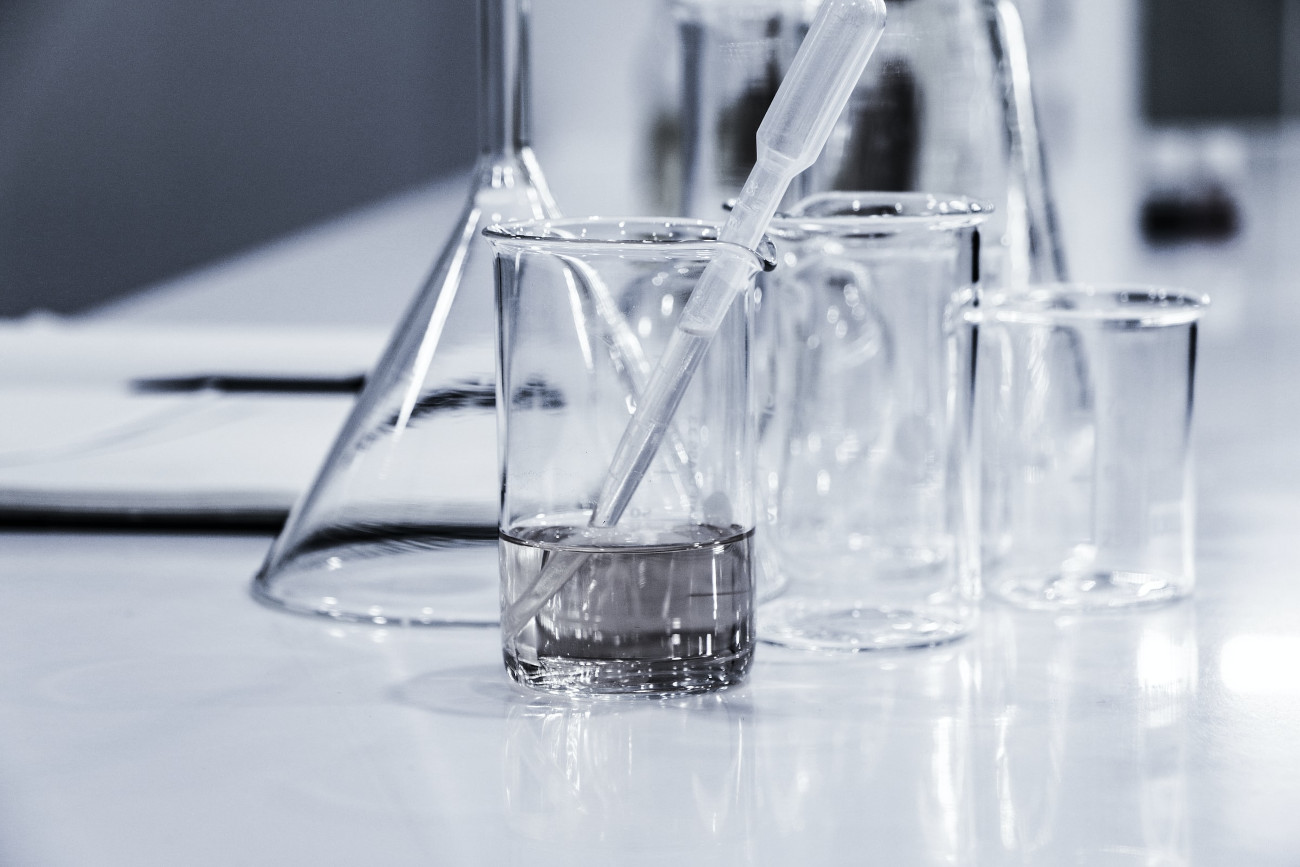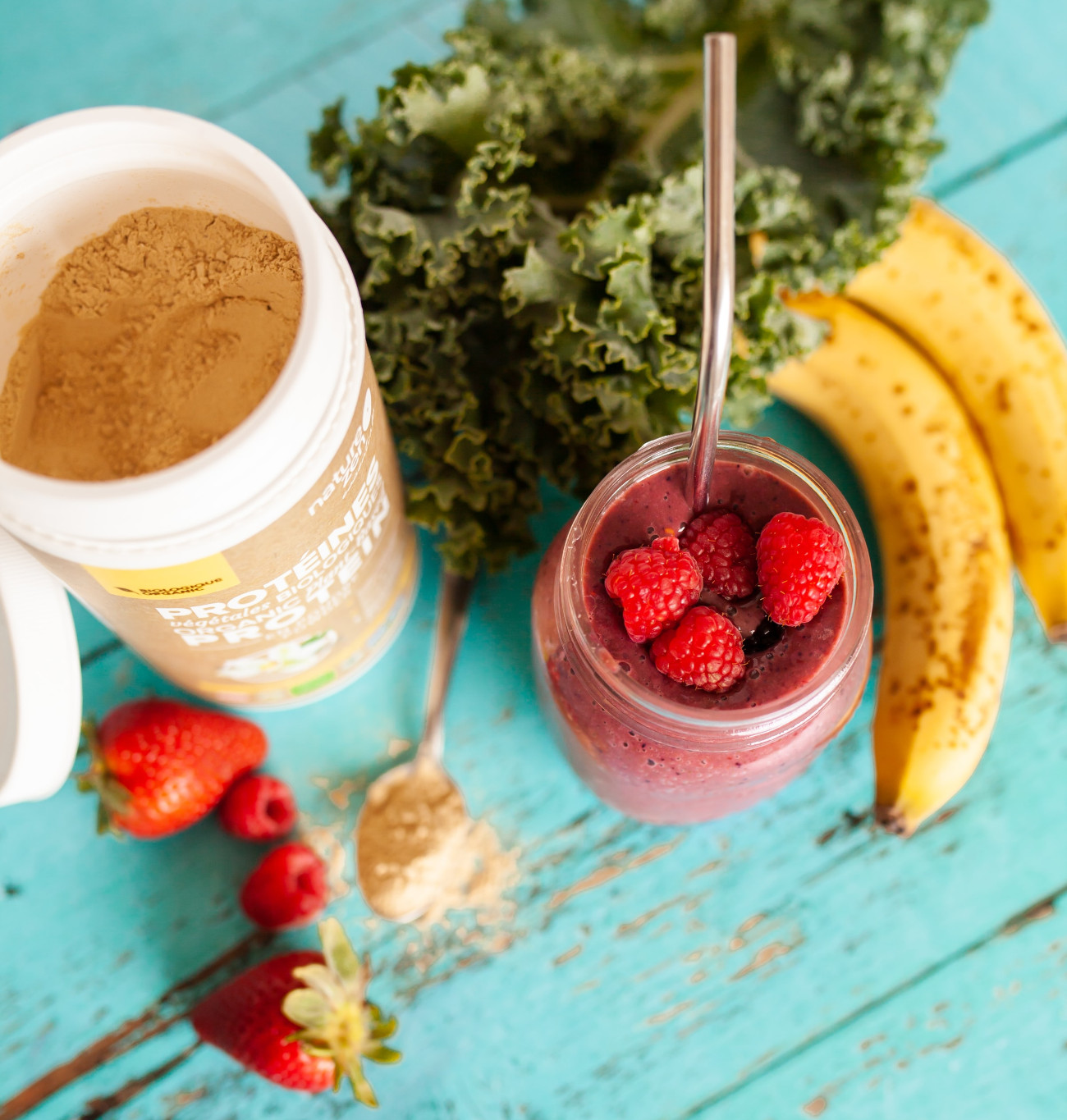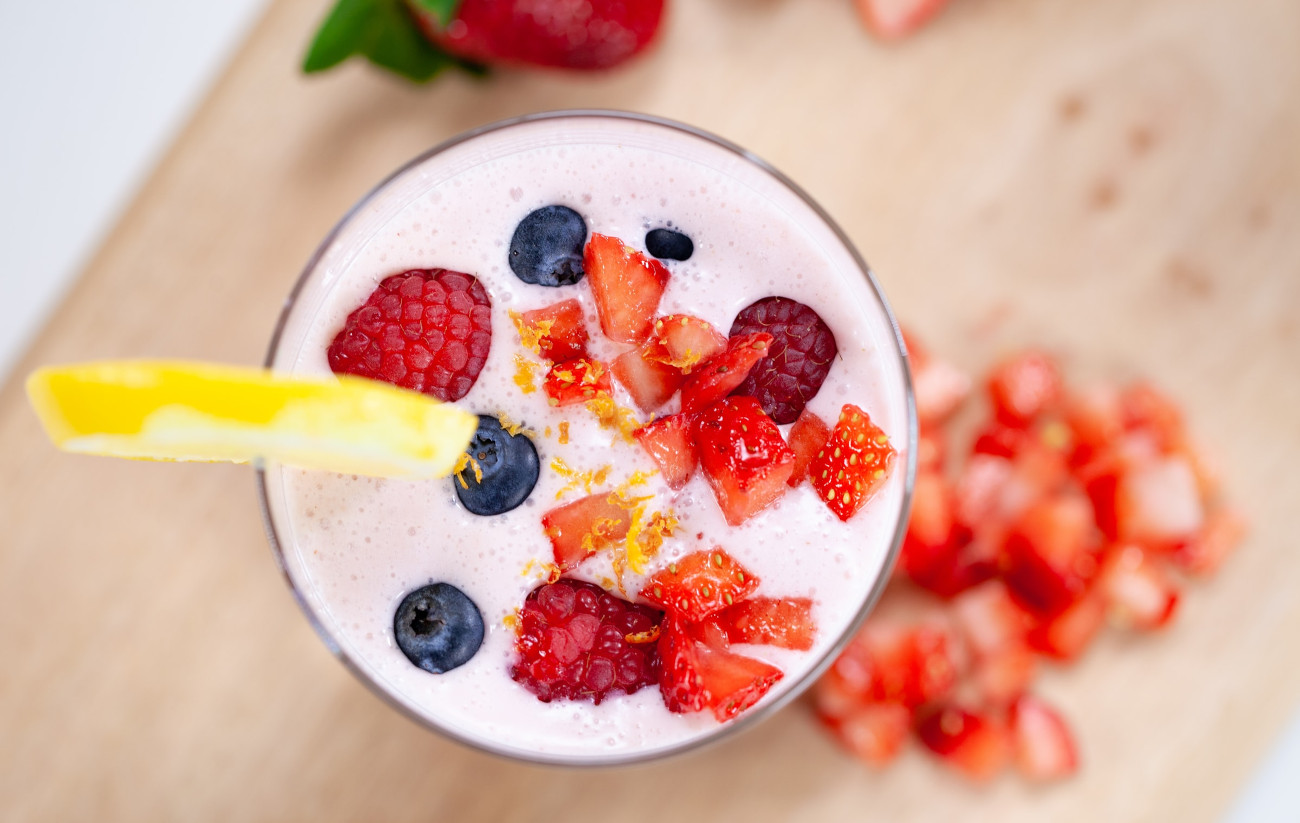Get to know the different types of whey protein and production methods. Find out how quickly whey protein is absorbed and which products are particularly safe and recommended.
Why Is Whey Protein So Popular?
You want to optimize your diet to lose weight fast and build muscle? You even already go to the gym regularly and want to tickle out the maximum? Perhaps you are on a diet and want to protect your muscles by maintaining high levels of amino acids in your blood? It is precisely in these cases that it makes sense to take whey protein.
This is a protein obtained from whey, a product obtained from milk during cheese production. Whey protein, along with casein, is the main protein component of protein in milk. The special thing about whey protein is its very high biological value. This value indicates how well the body can utilize the amino acids supplied by the protein.
Is Whey Protein High Quality?
Whey protein has a very high biological value because it contains all nine essential amino acids, which is why it is referred to as complete protein in the specialist literature. Essential amino acids are those that the body cannot produce itself. They must therefore be ingested through food. Probably the most important property for you is that whey protein is an easily digestible and therefore fast-acting protein. You will find out why this is very important to you in the next section!
When Should I Drink Whey Protein?
Imagine you sleep about 7-9 hours a day. That is about one third of the whole day. This is a very long time in which you do not eat any food. Your body’s own carbohydrate stores are now used up, your amino acid levels are exhausted. This leads to the fact that your body is in a catabolic state, so it begins to break down your muscles. This is detrimental to both muscle building and your diet. Because the fewer muscles you have, the fewer calories your body uses, so you lose weight more and more slowly. So you have to consume easily digestible and quickly absorbable protein sources immediately after getting up to prevent this. And whey protein is simply best suited for this. You have the same situation right after your workout. Again, your glycogen stores are depleted and your body is in a catabolic state. So this is also the perfect time for some whey protein.
 Photo by LYFE Fuel on Unsplash
Photo by LYFE Fuel on Unsplash
Should I Drink Whey Protein Everyday?
Whey protein should be taken at least once a day. Always right after getting up, a whey protein shake can work wonders in the long term. Immediately after exercise, regardless of whether it is endurance, strength or fitness training, a portion should also be taken. Whey protein is also ideally suited to be consumed as a snack, e.g. during work or school breaks. Supplemented with, for example, a banana, an apple or a sandwich you quickly have a full meal. By mixing different protein sources, you can increase the biological value of the entire meal, as an additional expert tip…
Can You Drink Whey Protein With Water?
Whey protein powder can be dissolved in water, (low-fat) milk or oat milk, or alternatively mixed with low-fat yogurt or quark. Take 30 to 40g (1 to 1.5 SCOOPS) of powder and about 200 to 300 ml (6 to 8 FL OZ) of liquid of your choice. Try to achieve a consistency that is pleasant for you. Now shake the shaker bottle vigorously or start the blender and enjoy!
 Photo by Amanda Vick on Unsplash
Photo by Amanda Vick on Unsplash
If you use a shaker bottle, make sure you use the strainer or blenderball wire whisk provided. This allows the concentrate to dissolve better in the liquid and you avoid lumps. Also, regardless of whether you use a shaker bottle or blender, you should add the liquid first and then the powder. This way, no residue remains in the lower part of the container.
Of course, you can take your shake to the next level in the blender by adding fruit of your choice and oatmeal or instant oats. You can also enhance your smoothie by increasing the total amount of protein with whey protein. Here, you can try neutral-tasting supplements so as not to overpower the smoothie flavor.
Should I Take Whey Isolate or Concentrate?
You already know that whey protein is made from the whey in milk. In practice, whey is a by-product of cheese production; the whey itself contains less than 1% protein. But how do you get from a liquid, the whey, to a powder with an extremely high protein content of up to 90%? After reading the following sections, you will understand the differences and will be able to make informed purchasing decisions.
What Is Whey Concentrate Made Of?
To obtain a whey protein concentrate, the whey is freed from most of the fat, lactose (milk sugar) and cholesterol using an ultrafiltration process. This filtration takes place at low temperatures, whereby the whey is reduced to about 20% of the initial volume. The solution obtained in this way is carefully dried. You have now made a whey protein concentrate with a high protein content. The protein content is 70 to 80%, with a carbohydrate content of 6 to 8% and a fat content of 4 to 7%. Due to the comparatively simple manufacturing process, it is usually cheaper than a whey protein isolate.
What Is the Purpose of Whey Protein Isolate?
How do you get a protein powder with a higher protein content than that of the whey protein concentrate? Whey protein isolate can be obtained by two different methods, which you will now get to know.
Ion Exchange Process
The ion exchange process uses electric currents. The electrical charge of the protein molecules is briefly changed in such a way that they are attracted to an electrical pole (electrode). This is achieved by using solvents and changing the pH value at an appropriately adjusted temperature. Now the protein “sticks” to the electrically charged pole, so time to add water to wash away the remaining components of the whey. You now release the protein by reversing the charge of the electric pole. The isolated protein just needs to be dried and voilà, you have produced a high quality whey protein isolate.
Microfiltration Process - Cross Flow Micro Filtration (CFM)
Ion-exchanged whey protein isolate has an extremely high protein content in the dry matter, which can even be up to 98%. During the manufacturing process, some of the protein building blocks contained in whey are denatured. This reduces the value of the protein powder. As a result, many protein subspecies (peptides) that are beneficial to health and the immune system are reduced.
A much gentler process is the microfiltration process, also known as Cross Flow Micro Filtration or CFM for short. CFM is a solvent-free process that uses ceramic filters. The process takes place in a low-acid environment and at low temperatures. As a result, in contrast to the ion exchange process, the protein components of the whey are better preserved. The degree of denaturation is minimal here. Another advantage is that the whey protein isolate obtained in this way contains more calcium and less sodium, i.e. salts, than ion-exchanged whey. CFM is a non-chemical process that takes place without chemicals such as hydrochloric acid and sodium hydroxide. A very big benefit that you should keep in mind!
Whey protein isolate has an extremely high protein content of 90 to 96% and is practically free of fat, carbohydrates and lactose. If you suffer from lactose intolerance, a whey protein isolate is just right for you! So when buying a whey isolate, make sure that it was produced using Cross Flow Micro Filtration.
What Does Whey Protein Hydrolysate Do?
To help you make informed and well-researched buying decisions, you’ll now conclude by learning about a whey protein that’s less popular these days.
 Photo by Hans Reniers on Unsplash
Photo by Hans Reniers on Unsplash
Whey protein hydrolysate can be absorbed more quickly and easily by the body due to its very high bioavailability. During the hydrolysis process, the protein chains are broken down into the smallest fragments (peptides and amino acids), which are also referred to as hydrolyzed peptides. So the protein is optimized for your digestion. You should remember the following: The higher the degree of hydrolysis, the more free peptides and amino acids are present. But what does this mean? It means that the hydrolysate is higher quality and gentler on the digestive tract. This is often accompanied by a higher price. The degree of hydrolysis is expressed in dH (degree of hydrolysation). Catalytic or enzymatic processes are used here.
Disadvantages of this whey protein are especially the bitter and unpleasant taste. Also, this whey protein is quite expensive, due to the complex manufacturing process. Also to be seen as a disadvantage is the fact that the promised positive effects in studies were only partially verifiable. Due to the splitting process, important protein components of whey protein are no longer contained in the end product. Finally, you should know that manufacturers usually do not sell pure hydrolysate, but an isolate to which hydrolysate was added. The hydrolyzate content is about 5%.
FAQ - Frequently Asked Questions
Do you know the feeling when you’ve been reading up on a topic for what feels like an eternity, but then you realize with disappointment that exactly YOUR particular question remains unanswered? I know this only too well, that’s why you get here a question-answer catalog with which even your most specific question will be answered. Let’s go!
 Photo by mari lezhava on Unsplash
Photo by mari lezhava on Unsplash
Is Whey Protein Good or Bad?
You’re curious and doubtful about whey protein and you ask yourself questions like “Do we even need that?” or “Is whey protein actually a good supplement?”. We’re definitely on the same page, asking questions and being doubtful is extremely important. And yet these questions could be asked about pretty much anything, but especially about foods and supplements.
Basically, you should ask yourself how serious you are about something. How much do you want to optimize your health? How much do you want to lose weight? How important is it to you to build muscle? Do you want to get the most out of a relatively inexpensive product? After reading this article in full you’ll come to the conclusion that whey protein is a very good source of protein with a lot of health related benefits. The health and nutritional benefits paired with a good price-performance ratio justify the use of whey protein.
Is It Bad to Drink Protein Shakes Everyday?
This question should be rephrased to “Is too much protein harmful?”. Too much Whey is not harmful! However, you have to pay attention to the following when you increase or even significantly increase your protein intake: You should drink more! By drinking more you make sure that your kidneys are relieved with an increased protein intake.
So you can use whey protein without hesitation!
Can 15 Year Olds Take Whey Protein?
Products such as whey protein or whey protein isolate are high-quality protein concentrates. So the question needs to be rephrased as “How healthy is protein?”. This question is as legitimate as “How healthy are carbohydrates?” or “How healthy are fats?”.
So these questions relate to how healthy macronutrients are in general. The answer is very simple: without macronutrients, especially protein and fats, we cannot survive. They are the components of our food. The prefix “macro” indicates, in contrast to “micro” as in “micronutrient”, that this is one of the main nutrients. “Macro” means “large” or “main”.
But to answer your question specifically, you should remember that each of the macronutrients is important to you. Whey protein is simply a source of your protein needs. However, you should still note that if you have a very high protein intake, you should also drink a correspondingly large amount of water! Basically, whey protein is very healthy! It can help you lose weight as well as build muscle. But it can also be taken to strengthen your health and your immune system.
Can Whey Protein Reduce Belly Fat? Does Protein Reduce Weight?
In the search for the information to achieve your goals, sooner or later you will come across nonsensical and deceptive information. That is why it is very important that you remember one thing: whether you gain or lose weight is determined solely by your total calorie intake! So if you eat more calories than you consume over a longer period of time, you gain weight. If you eat fewer calories than you consume over a longer period of time, you lose weight. That is the all-important basic rule.
Can you lose weight with whey protein or not? Not directly! However, the special thing about protein is that it is a macronutrient that is very difficult to convert into body fat. This process is very energy consuming for the body. Also, protein ensures that you are saturated longer, so it curbs your appetite. Also, proteins have the great advantage that they do not increase insulin levels as much as carbohydrates, for example. In this environment, the body stores less fat or releases fat more easily for breakdown. Whey protein can therefore have positive effects on weight loss!
Can Whey Protein Make You Gain Weight?
Whey protein is a protein powder made from the whey in milk. It is a protein concentrate with the highest degree of purity. Like the other two macronutrients, carbohydrates and fats, it is an important part of your diet. Your body is largely made up of protein, especially your tissues, your organs, your muscles and the like.
You can supplement your diet with whey protein. You will benefit most from whey protein if you take it early in the morning right after getting up and as a snack right after working out. Early in the morning it helps to stop the catabolic processes in your body. The same applies to the intake after the workout; here additionally anabolic (muscle building) processes are stimulated in a natural way. It thus contributes to a healthy diet and can help you lose weight or build muscle.
What Did You Learn From This Article?
In this article, you’ve learned practically everything you need to know about whey protein. Now you have in-depth knowledge and can now make well-considered purchasing decisions. The following points summarize for you what you should remember!
- Whey protein is a protein obtained from whey, a product obtained from milk during cheese production.
- It is best taken right after getting up and right after working out.
- It can help you lose weight and build muscle.
- Whey protein isolate is an even purer whey protein. It contains less carbohydrates and fat and more protein.
- Whey protein isolate is particularly suitable in intensive diets and in cases of lactose intolerance.
- As a serving, we recommend 30 to 40 g (1 to 1.5 SCOOPS) of powder and about 200 to 300 ml (6 to 8 FL OZ) of liquid of your choice.
As an Amazon Associate I earn from qualifying purchases. However, the price remains unchanged for you. Thanks to the revenue, ShapeGanic is available to you at no cost.


 Photo by
Photo by 

